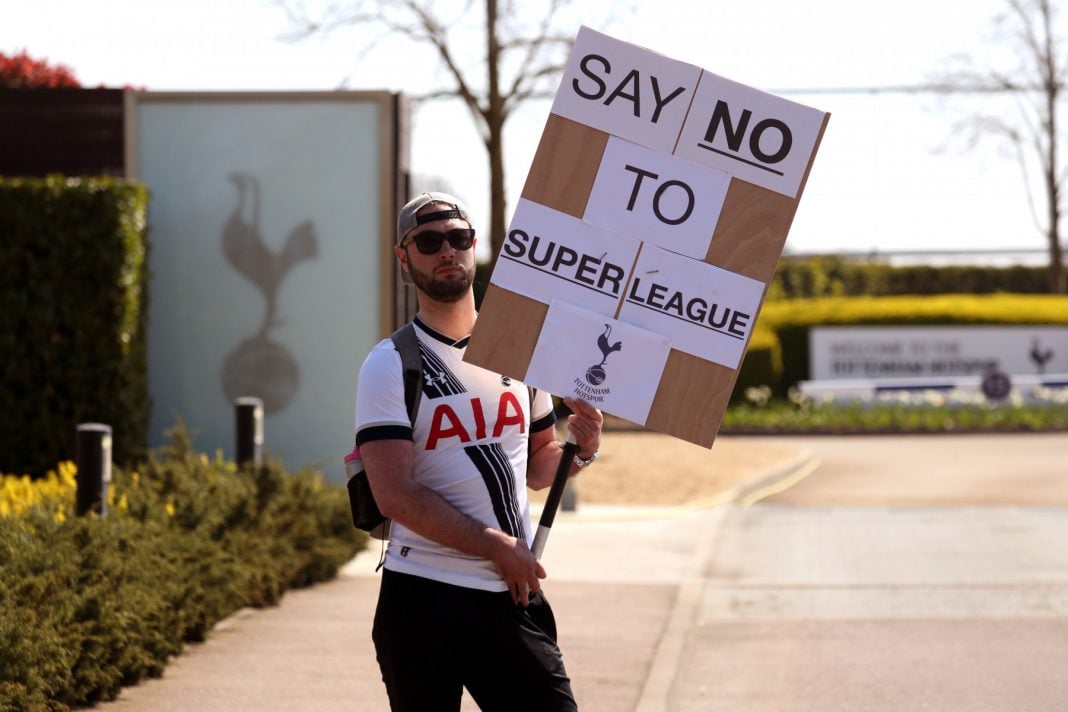Alliances between top European clubs and sponsoring brands could be ‘seen as even more of a premium’ following the formation of the European Super League, according to Michael Jackson, Group CEO of Elite Sports Marketing.
Speaking to Insider Sport following the news that a dozen of Europe’s leading football clubs, including the ‘big six’ Premier League teams, have signed up to become founding members of the new ‘Super League’, the sports marketing expert reaffirmed that brands must gauge the supporter reaction to the announcement.
“The global brands are still going to want to follow the big clubs and the big fan bases they bring with them,” he noted. “What brands will need to do is measure the reaction from fans regarding this move.
“Given this news broke late on Sunday evening, we have to ask how many of the big six partners actually knew this was coming? It will make it even harder for brands outside the global elite to partner with these clubs and the relationships will be seen as even more of a premium.”
Nonetheless, the tournament should generate interest from a fan engagement perspective and the Super League may add value to rights-holders’ contracts, given the consistently high level of talent partaking in the competition.
“It would, without a doubt, be a huge draw across the globe, seeing Ronaldo, Neymar, Kane, Kante, Werner and many more playing each other week in and week out. We all wait for the Champions League to watch the best in the world and this would be no different, other than you don’t have to wait to see Chelsea versus Real Madrid.
“Brands I have spoken to who have sponsored the Champions League tell me that the only real uptake in exposure is when it gets to the last 16. Not many are turning their TVs on for Sparta Prague versus Genk!”
When asked how the proposals might affect existing sponsorship and media rights with UEFA Champions League organisers, he responded: “This is the big question. How do you continue an elite competition without the elite in the competition?
“UEFA’s reaction has to be seen for what it is. They are desperate to keep the competition as for them it’s a money making machine. They are no different to the clubs that are trying to pull away. In the end, it’s about the money.”
Conversely, he hypothesised that some brands and companies may take a principled stance and form a unified collective with supporters.
“To some degree, some brands will take a moral stand and ‘stand by the fans’ which in essence is a marketing move – no more, no less.
“If this does go ahead, brands will follow the clubs. It’s about brand exposure and ROI, and the Asian markets, as well as Latin America, are still a hugely untapped market for so many.
“With the pandemic, we are already seeing new brands and new industries investing in sport, and across more sports. Rugby League has been a big winner, as has other sports, so this may be a good thing for them too.”
Yesterday, pay-television broadcaster BT Sport condemned the ‘damaging effect to the long term health of football in this country’ that the proposals could have, vowing that the sport at every level ‘needs to be protected’.
Meanwhile, DAZN also distanced itself from reports that the digital sports streaming service is interested in bidding for the rights to the breakaway competition.
“This is a good move from BT Sport,” Jackson reaffirmed. “They will have seen the universal condemnation of this move and have come out early to their opposition. But let’s be clear, they also don’t want to pay a huge fee for the rights, when they already pay for Champions League coverage at the moment.”
He continued: “DAZN has been a growing broadcaster in the market, and for them, this is showing that they have big plans and intend to be in the mix. However when they see the fees, they may quickly bulk at the price and see value in other broadcasting opportunities.”
Elsewhere, Bundesliga giants Bayern Munich and Borussia Dortmund have ruled out joining the breakaway division, with both German and French representation noticeably lacking from the initial sign-ups.
“Bayern and Dortmund have not surprised me by the initial reaction to all this,” the CEO added. “They were both formed from the roots of clubs who are fan-first.
“I think if this does progress, they will have no choice but to join. At the end of the day, they are businesses and profits will be a key factor. The argument will be, ‘if we are not in this money making machine that is the new Super League, how do we stay competitive, and how do we attract the best talent?’”
UEFA, which had been planning to give the Champions League a facelift in order to entice teams to remain in the tournament, has refused to acknowledge the breakaway league and has even threatened bans for players who compete in the Super League.
Jackson concluded: “All this said, I cannot believe that this will become a reality, with total condemnation of this move from all parts of football. Fans, sport, politics and more suggests that this would be a huge mistake.
“The problem has been that they have gone about this all wrong. A few people in a small room have put this together and never really given much thought past the revenue generation.
“Is the Champions League perfect? No, but it can be fixed. This could have been totally different if they had consulted all parties early in the process. We will wait to see what happens but I think this lives or dies in the next few weeks.”























